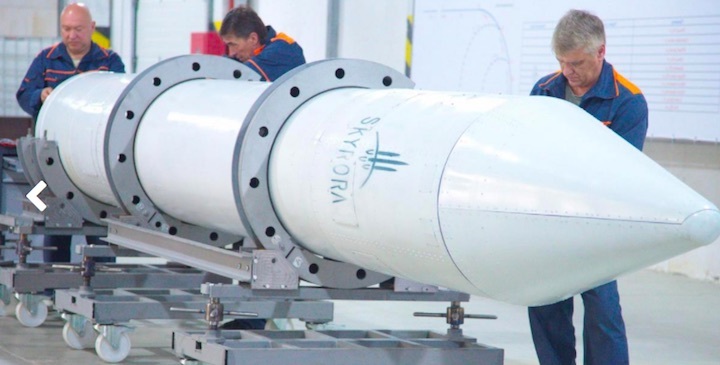10.02.2018

SCOTLAND will officially join the space race later this year with the launch of a small satellite from a location probably in the north of the country.
The National has learned that Edinburgh-based developers Skyrora are planning a suborbital test flight sometime in the last three months of 2018.
Skyrora has already looked at Shetland as a small satellite launch location where the Saxa Vord site of the Shetland Space Centre is bidding for a licence from the UK Space Agency – all matters to do with space are reserved to Westminster.
With its partners in Ukraine, Skyrora aims to grab a share of the growing market for small satellites with their launcher rocket that is similar to the home-grown technology that powered the Black Arrow project in the late 1960s and early 1970s.
Like Black Arrow, Skyrora’s rocket engines run on hydrogen peroxide and kerosene. Launched from Woomera Test Range in Australia, Black Arrow saw the UK become the sixth country in the world to launch its own satellites in October 1971.
Sadly for space travel fans across Britain, the entire programme had already been cancelled by the then Tory government of prime minister Edward Heath on cost grounds.
Daniel Smith, business development manager at Skyrora, told SpaceNews publication that the engine will be tested shortly.
He said: “Things are moving very rapidly at this point. We’ve already 3D-printed various parts of our suborbital test vehicle and are in advanced talks about testing our engines here in Britain.

“We expect to grow our UK team substantially in Q1 2018, particularly on the manufacturing side of the business.”
The tie-up with Ukraine where the firm has a research and development facility in Dnipro gives access to Ukraine’s 70 years of space industry know-how.
Smith told SpaceNews: “As a British company, it’s helpful for us to have access to Ukrainian knowledge that can support our activity.
“We outsource some design tasks to a team over there that has a mixture of real launch experience and young dynamic university graduates. It’s factors like this and our private ownership that give our business an edge in the UK market, allowing us to move confidently at our own speed.”
The declared aim of Skyrora which also has offices in London and is close to the burgeoning satellite development industry in Glasgow is to “show that our technology will enable the country to capture a larger part of the global space market.”
Smith confirms that the company is drawing from the experiences of the UK space industry and says he finds pride in the fact that “we’re using the same propellant as Black Arrow did and essentially combining their successfully proven, 50-year-old ideas with today’s most advanced technology.”
Skyrora says its use of Black Arrow-inspired technology will also allow the company to reduce the cost of space launches.
The first rocket will be able to carry a payload of up to 150kgs, and according to the company’s website, all the main components of Skyrora One are ready.
Smith said: “Our decision to use hydrogen peroxide and kerosene came about for a variety of reasons, and we do appreciate the link with Black Arrow and feel a certain sentimental connection to that project.
“We’re actually planning to sponsor the build of a full-size replica Black Arrow for the Wight Aviation Museum, as we’d like to help ensure that future generations are aware of the fascinating story of Britain’s first and only satellite launcher to date.”
Quelle: The National
